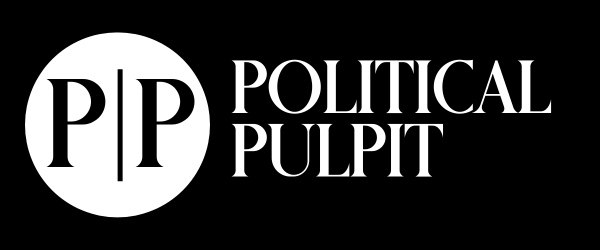“Pray for the peace of Jerusalem: ‘May those who love you be secure.'”
— Psalm 122:6
This week, twenty-five nations from across the Western world—including the United Kingdom, Canada, France, Germany, Italy, and Australia—issued a unified call for an immediate, unconditional, and permanent ceasefire in Gaza. Their statement, released July 21, reflects the growing concern among global leaders that the conflict has reached a catastrophic tipping point.
They did not mince words. The humanitarian suffering, they warned, “has reached new depths.” The nations condemned the current aid distribution model in Gaza, claiming it denies dignity and stability to the very people most in need. They demanded that aid be allowed to flow freely, that hostages be released, and that all parties return to the table with urgency and honesty.
This is not merely a matter of international diplomacy. It is a matter of human conscience—and a moral moment for the Church.
A Crisis at the Crossroads
Since the horrific October 7 attacks by Hamas that killed over 1,200 Israelis and resulted in hostages being taken into Gaza, Israel has responded with a relentless military campaign to dismantle the terrorist infrastructure embedded throughout the region. Yet nearly ten months later, the situation has devolved into a humanitarian emergency of staggering proportions.
Tens of thousands of civilians, including children and aid workers, have been killed. More than 1.9 million people have been displaced. Access to clean water, electricity, and medicine has all but vanished. Aid trucks have been targeted. Entire neighborhoods have been reduced to rubble.
Let it be said clearly: Israel has the right to defend itself. That right is enshrined in international law and rooted in moral clarity. No people should live under the threat of terror. Hamas is a terrorist organization that hides behind civilians and has no interest in peace.
But acknowledging Israel’s right to security does not mean turning a blind eye to the suffering of innocents. Justice without mercy is not justice at all. And the scale of civilian suffering in Gaza can no longer be viewed as collateral damage. It is a humanitarian catastrophe.
A Christian Response to War and Suffering
Jesus said, “Blessed are the peacemakers, for they shall be called the children of God” (Matthew 5:9). Notice: He did not say “peacekeepers.” Peacemakers are those who step into chaos to build bridges. They do not tolerate evil, but neither do they stand idly by while innocent blood is shed.
We as Christians, especially those who operate from a conservative worldview, often show strong support for Israel. This is rooted in biblical prophecy, shared values, and historical solidarity. But that support must not blind us to injustice or human suffering.
If we are willing to fight for the rights of the unborn here at home, we must also be willing to speak out for the lives of starving children in Gaza. If we believe in the sanctity of life, that belief must apply universally—not selectively.
We do not need to choose between supporting Israel and caring for Palestinians. We must instead choose the path of peace, justice, and righteousness—anchored in the Gospel of Jesus Christ.
A Turning Point in Global Conscience
The joint statement from the 25 Western nations is not an indictment of Israel’s existence—it is a plea for the preservation of humanity. It demands:
- An immediate, unconditional, and permanent ceasefire
- The safe release of all hostages
- Full humanitarian access to all parts of Gaza
- Renewed commitment to a negotiated political solution
Israel’s Foreign Ministry has rejected the statement as “disconnected from reality,” arguing that the pressure should be placed on Hamas, not on the Israeli government. This position reflects real frustration—but it cannot erase the undeniable fact that a ceasefire is the only immediate path to preventing further death and destruction.
The statement from these nations must not be dismissed as political theater. It is a signal of growing moral urgency across the world. People are waking up. And the Church must not be last to respond.
A Prophetic Responsibility
Isaiah prophesied of the coming Messiah, saying, “Of the increase of his government and peace there shall be no end” (Isaiah 9:7). Christ is the Prince of Peace. Wherever His kingdom advances, reconciliation—not endless war—must follow.
In moments like these, the Church must do more than take sides. We must take a stand. Not against nations, but for peace. For life. For righteousness.
We call on the American Church and Christian leaders across the globe to:
- Pray fervently for Israel, for Gaza, and for all innocent civilians trapped in the crossfire.
- Advocate to elected officials for a ceasefire that includes humanitarian aid and hostage release.
- Condemn antisemitism and anti-Arab hatred, both of which have no place in the kingdom of God.
- Support ministries and organizations delivering aid to those in crisis.
This is not a time for silence. It is a time for courage. For conviction. For compassion. Let us raise our voice, not in accusation, but in intercession.
Let Us Be Peacemakers
It is easy to post about peace. It is harder to pursue it. Yet we are called to be ministers of reconciliation, ambassadors of a kingdom not built on tanks and rockets, but on truth and grace.
Political Pulpit stands for justice, for faith, and for life. We stand with the innocent. We stand for peace.
Let this be our declaration: We will not accept endless war as inevitable. We will not justify injustice in the name of politics. And we will not remain silent when human suffering cries out for intervention.
Now is the time to act—not as Republicans or Democrats, but as believers. Not as spectators, but as peacemakers.
Take Action
Join us in prayer and advocacy. Let your elected representatives know that you support peace and humanitarian aid in the Middle East.
To support our work and help amplify this message, visit www.politicalpulpit.com/partner. You can also subscribe to our weekly newsletter for updates, commentary, and news from a biblical perspective.
Let us be known—not by how loud we shout in political debates—but by how boldly we stand for peace in a world that desperately needs it.



